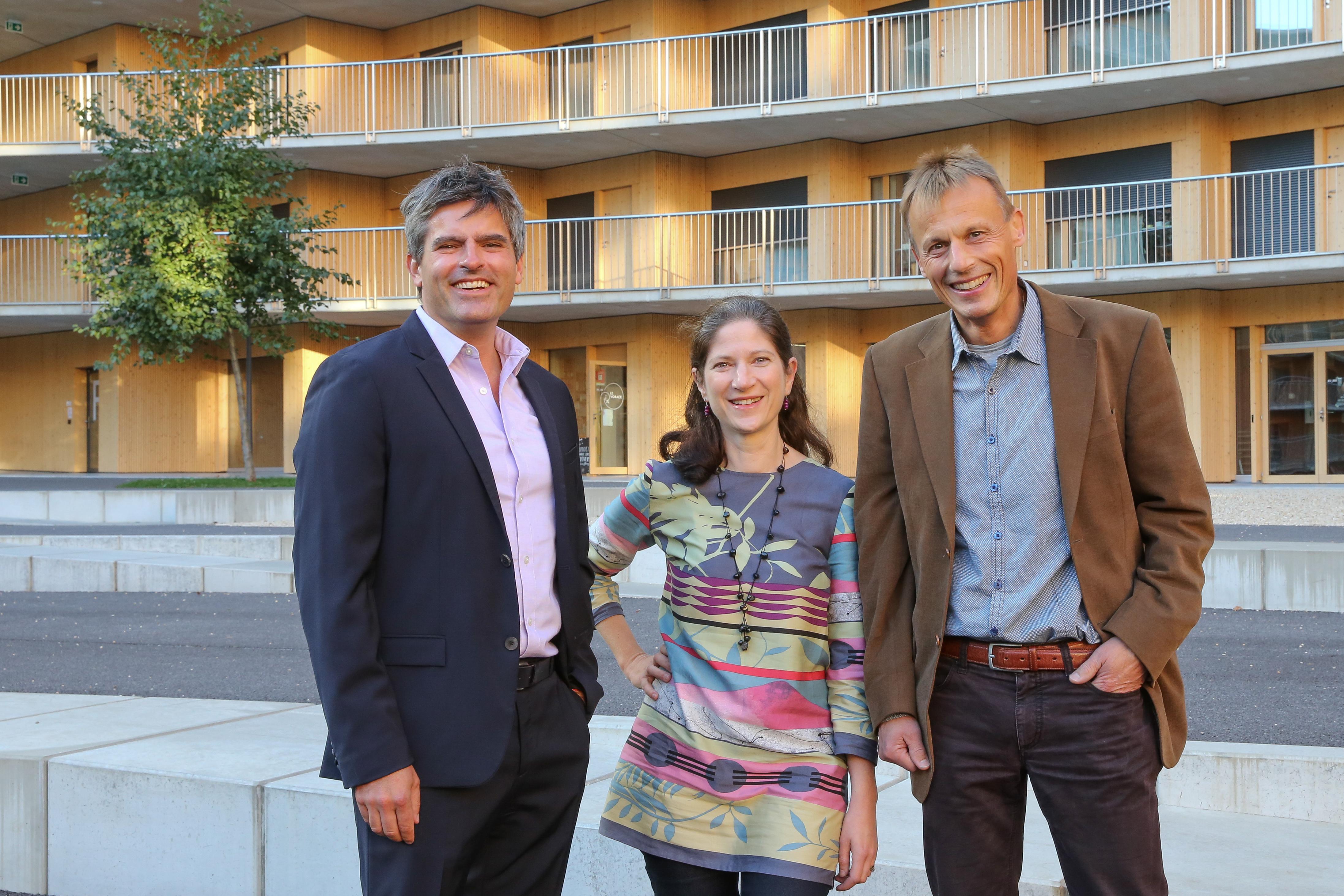The CLIMACT center brings together experts in climate change from the University of Lausanne and EPFL. Its goal is to serve as an effective interface between science and society. Presentation and interviews.
There's no doubt about it, the time to act is now. Our climate is changing at an accelerated pace and the Earth's biodiversity is at risk, as evidenced by numerous studies. Winning the fight against climate change will require pooling together experts from an array of fields. To that end, scientists from the University of Lausanne and EPFL teamed up to create the Center for Climate Impact and Action (CLIMACT). Recently inaugurated, this cross-disciplinary research center will serve as a focal point for climate-change experts and an effective interface between science and society.

Yet another stark warning on climate change came from the Intergovernmental Panel on Climate Change (IPCC) this summer, when it issued its Sixth Assessment Report highlighting the faster pace of shifting weather patterns and the growing frequency of extreme weather events - such as heat waves, record-breaking temperatures, floods and huge forest fires - occurring all over the world.
"Doing nothing is not an option," says Nicolas Tétreault, the executive director of CLIMACT. "Scientists from different fields need to work together and develop holistic solutions to this challenge." He points out that the problem goes beyond simply cutting emissions of carbon dioxide (CO2), the most prevalent greenhouse gas whose build-up in the atmosphere has already caused global temperatures to rise by over 1°C in the past 150 years. "The problem has numerous dimensions, and must be addressed as such," says Tétreault. That means we need to rethink not just our systems and infrastructure but also our very lifestyles.
A center with its work cut out for it
The multifaceted nature of climate change is what prompted CLIMACT's founders to draw on a broad panel of experts from not only core science and engineering fields like climatology, biology, physics and chemistry, but also softer subjects like economics, sociology and psychology. The center supports cross-disciplinary research that spans both universities and addresses societal, scientific and technological challenges through innovative, systemic approaches and close collaboration with business leaders and policymakers. It has formed working groups to examine specific topics such as how to better incorporate climate issues into curricula, what new degree programs can be offered and what pilot projects can be set up with students and associations from both universities.
The center's communications extend beyond the academic circle and include materials targeted to non-profit organizations, citizen movements, journalists and the general public. The idea is to give them the tools and resources they need to find the right experts, understand the many issues involved in climate change and grasp key environmental processes. CLIMACT will also help them navigate through the mass of information available on the issue and better identify attempts at greenwashing. Through their expansive contact networks, the center's employees will seek to recast the climate discourse with a focus on the benefits and positive aspects of the shifts that society will inevitably need to make.
Online seminars
CLIMACT works in tandem with decision-makers from the political and business arenas. "There are many people in the corporate world who are concerned about climate change and want to do something about it," says Tétreault. "So our idea is to show them how, such as by working with them to carry out pilot projects."
The center also holds interactive online seminars open to the general public. Here, experts present key climate and environmental data and discuss various issues, including the role that citizens and policymakers can play. Around 30 experts gave seminars last year; the recordings are available on the Climact Suisse channel on YouTube. A new series of seminars kicked off this fall with the start of the new school year. The next one will be held on 1 November, from 12pm to 1pm.
To view and attend the CLIMACT seminar series program, visit https://climact.ch/events/.
You can also view previous seminars on the Climact Suisse channel on YouTube.






